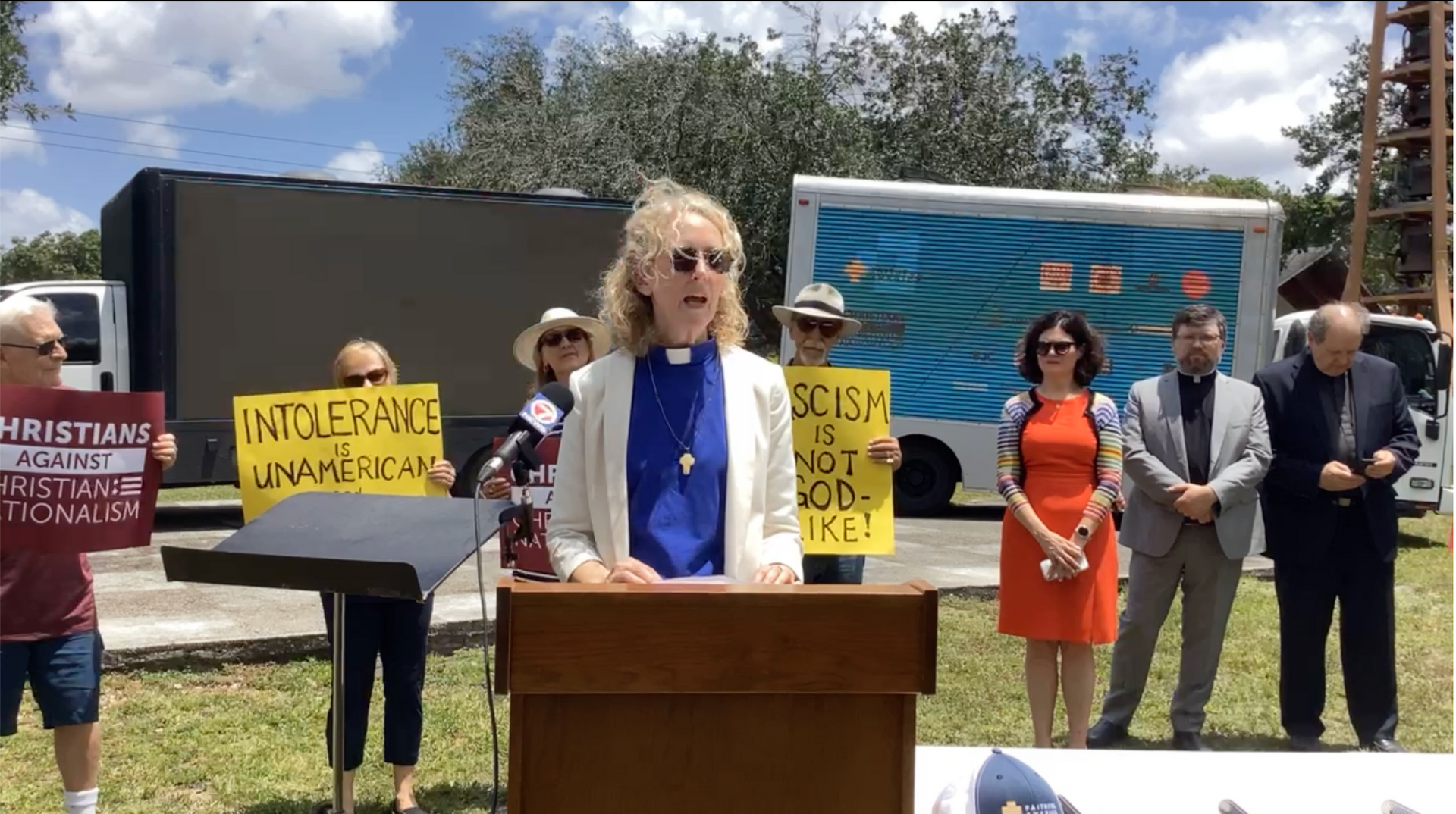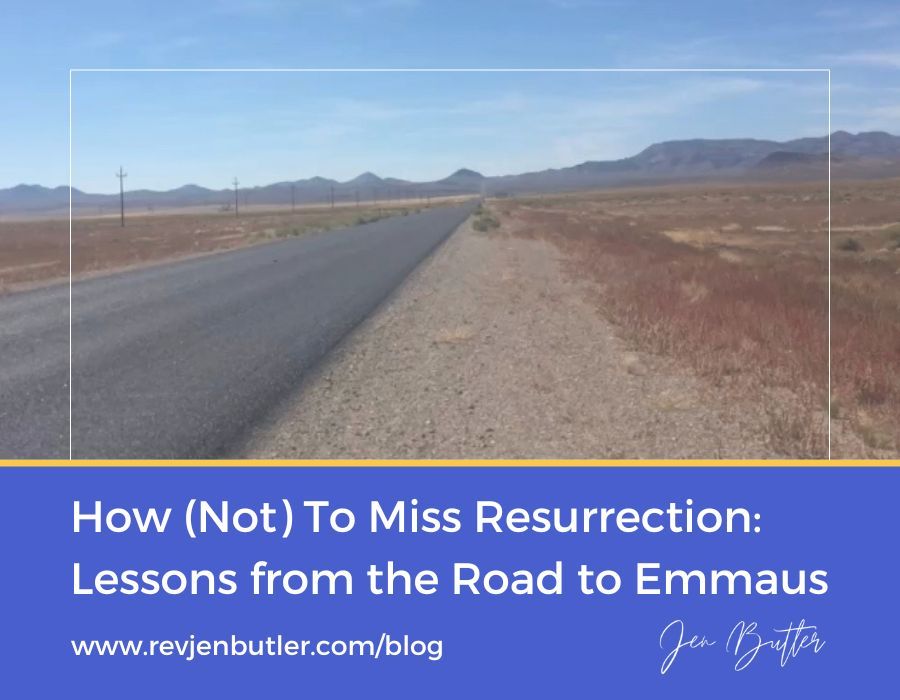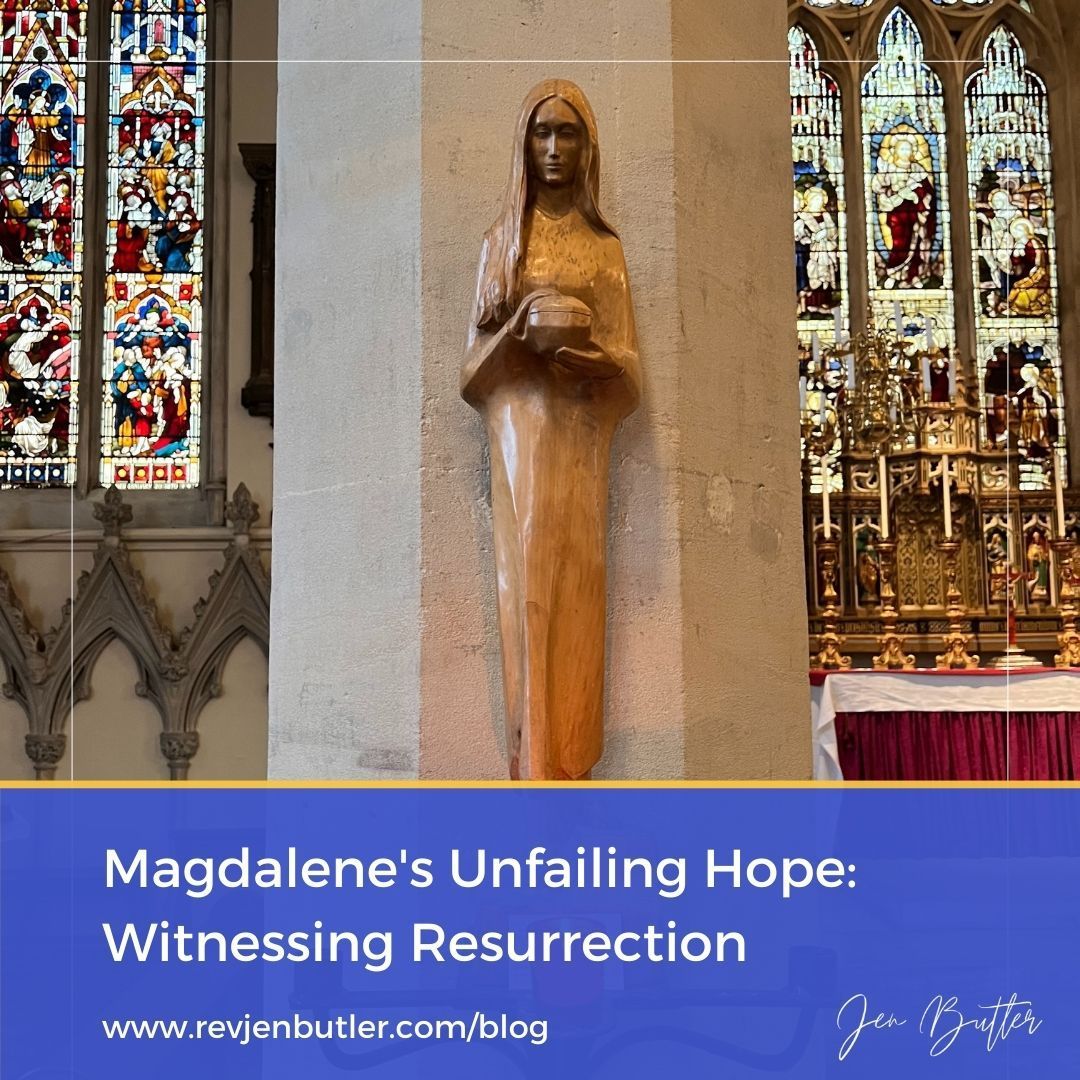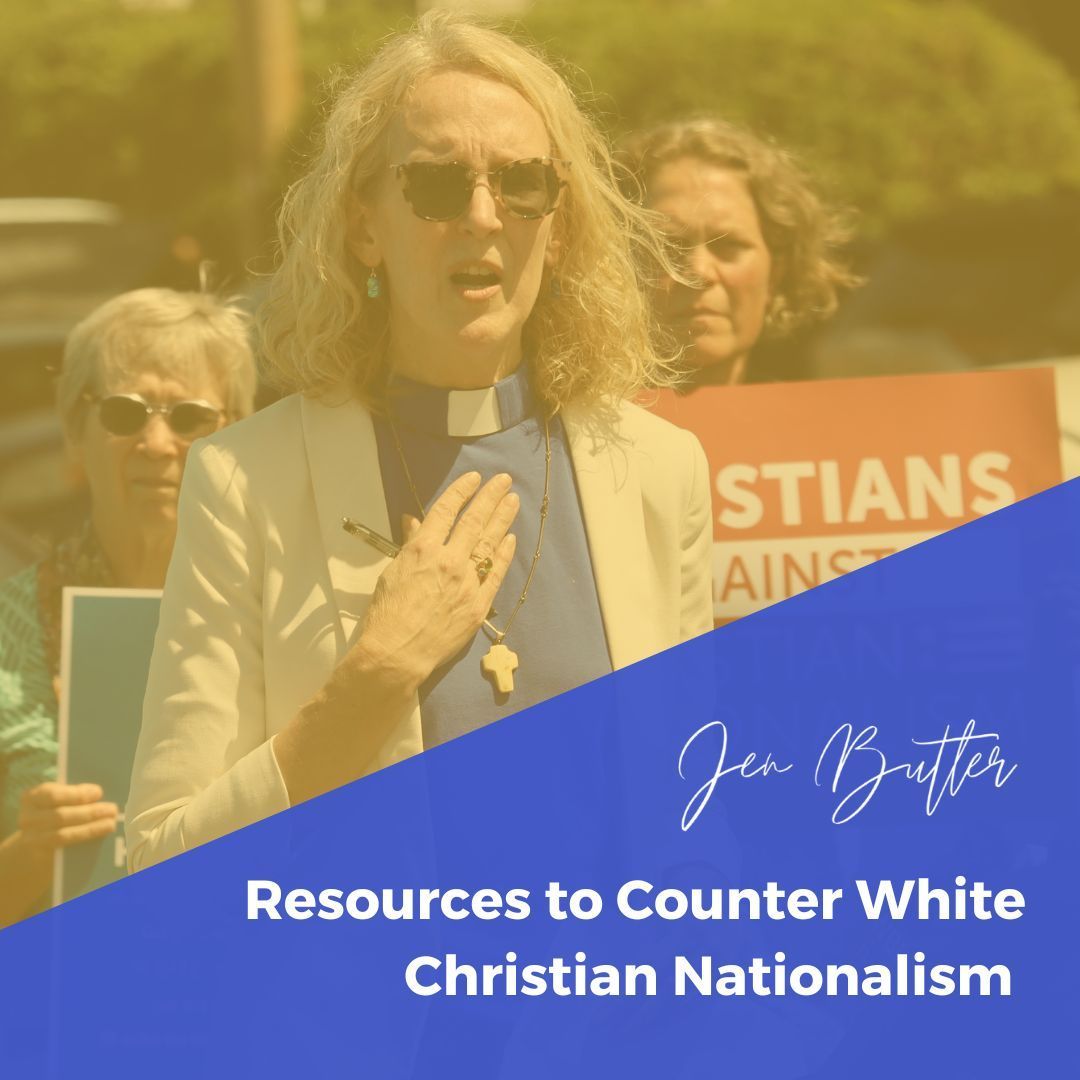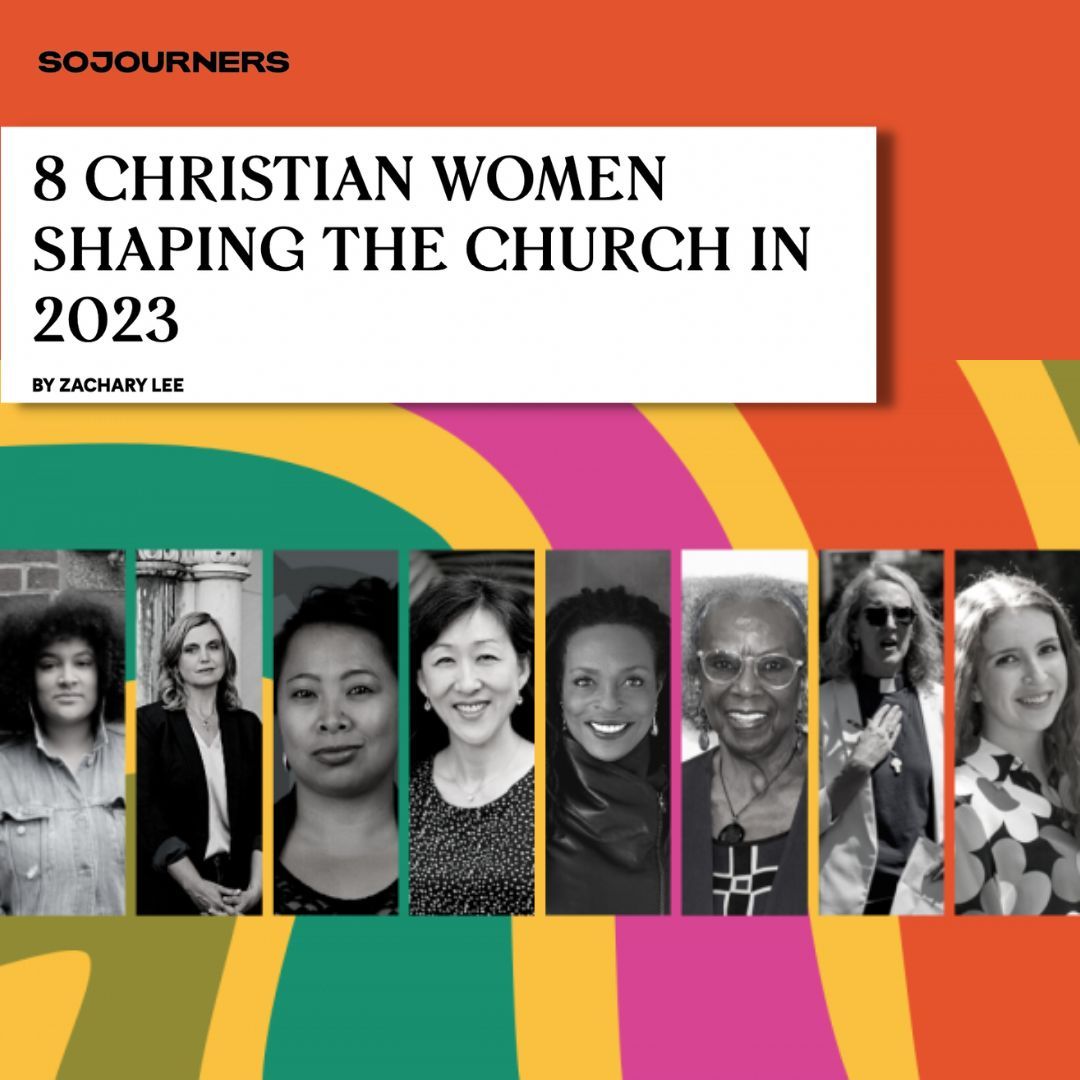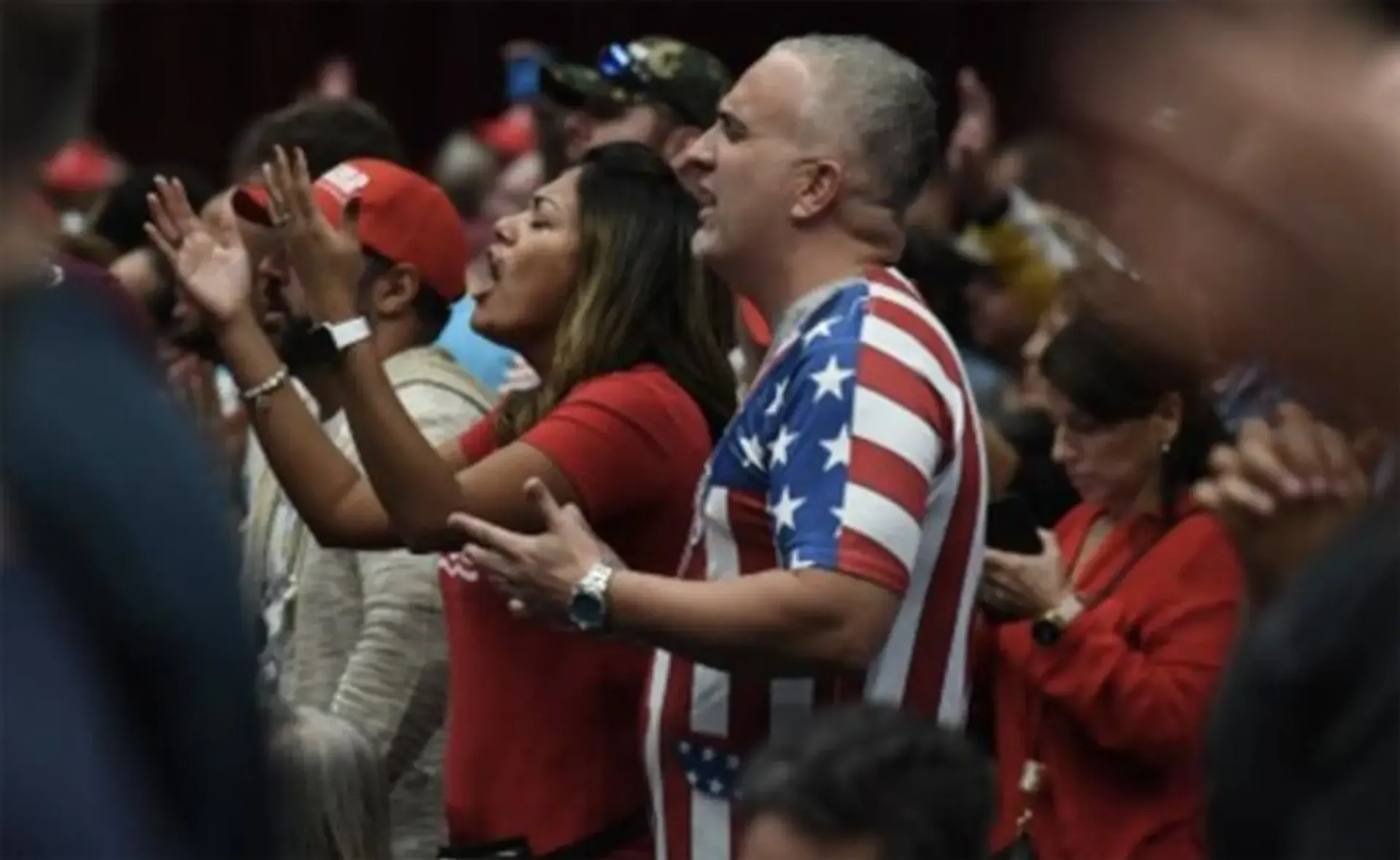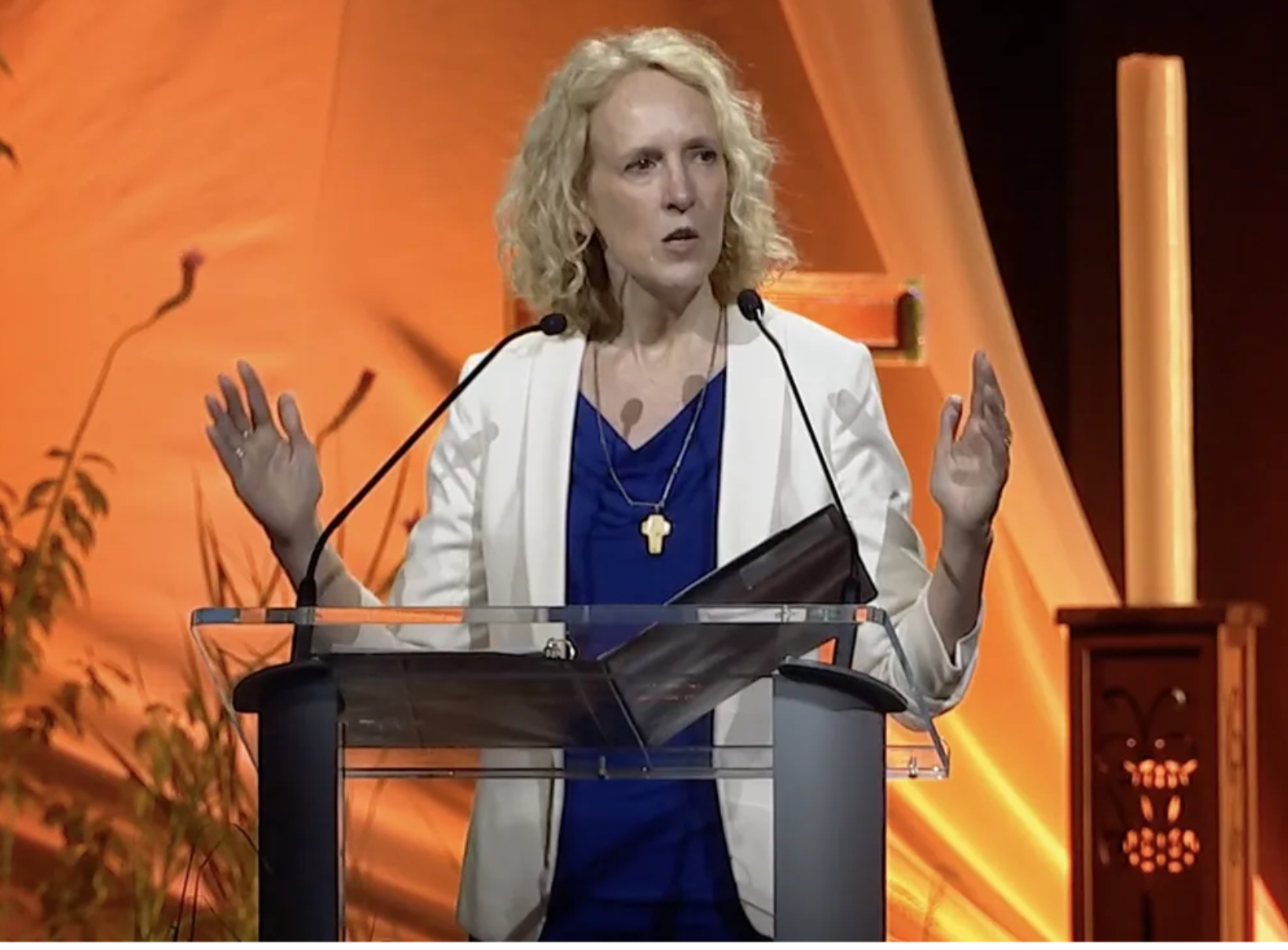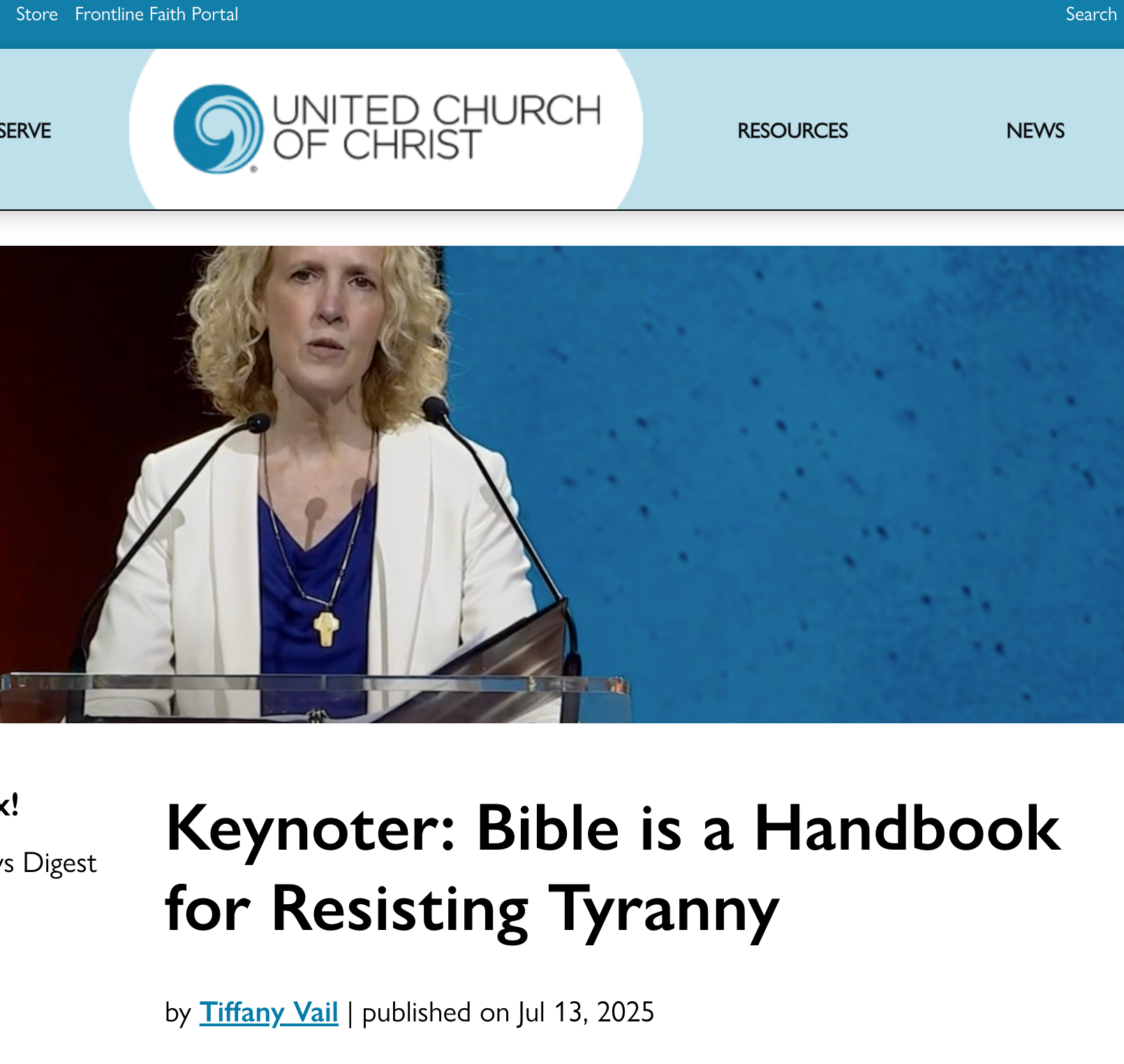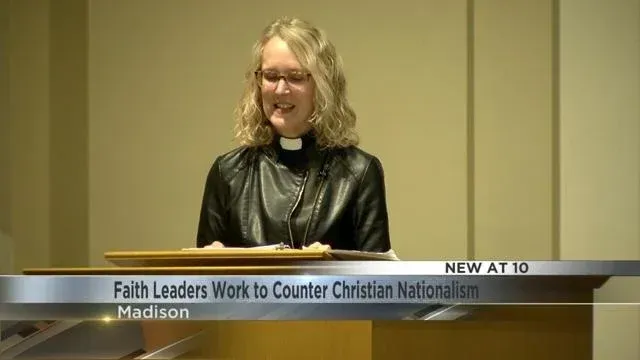The BIG Lie

Trump is gone but Trumpism remains.
We live in an age of politics organized around Big Lies: the enduring myth of white supremacy, the false religion of Christian Nationalism, denial of climate change, fabrications about election results, conspiracy theories such as Q, apocalyptic narratives about attacks on religious liberty, and tropes such as the undeserving poor and the corrupting immigrant. These are rooted in predation by powers and principalities capitalizing upon selfishness and fear. If we believe in these stories, we lose sight of the true roots of our suffering and we lose sight of God’s call to love one another as we love ourselves.
Reflection:
It’s no coincidence that truth is a central theme of Scripture from the very beginning. The fall begins with deception -- the devil in the form of the serpent tricking Eve to eat the forbidden fruit in the Garden of Eden (Genesis 3:1-19 NRSV). It is an act of predation upon credulity, which leads to the birth of all human suffering.
Throughout the rest of Scripture, from the Old Testament Prophets to John the Baptist to Jesus to Paul, truth comes via divine revelation voiced by God’s people in a world clouded by deception created by oppressive empires. Truth comes to those who follow the God who hears the groans of oppressive people and liberates. Those who see through the spectacle of empire by drawing near to those resisting authoritarian leaders of Egypt, Babylon, Rome.
God didn’t send prophets to gently meet deceivers where they were and nicely nudge them to do better. No. The voice of truth is always bolder. It cuts through the numbing agents of our surrounding culture to reveal our brokenness so that we can begin to heal that which we did not know was dying. God loves us too much to send us weak or ambiguous messages. We must model this love too.
In an age of Big Lies that mire us in the darkness of corporate sin, we must speak with divine boldness and honesty. This begins with a moral choice. Will we go along to get along? Will we let deception slide, in the name of keeping the peace or picking our battles? Or will we shine a light that overwhelms the Big Lies?
What do we Do?
The Bible presents us with a number of spiritual strategies and disciplines for staying grounded in God’s liberative truth and resisting the lies of Empires.
Prophets grounded themselves in the people’s lament. They broke through the complacency and numbness oppressive systems can create in us by drawing our attention to the voices of those who cry out.
We draw near to God when we investigate the realities of those who suffer. We listen. We relearn our history. We engage and encounter. We share their stories. We #SayHerName, Breonna Taylor. We #SayHisName, George Floyd. We repent of our tendency to look away or stay silent.
Make a list of how the Big Lies of our world might color your own vision. Make a list of where you see them most prominently in the church and public spaces. Now make a plan to investigate. What do you need to read? Who do you need to listen to more carefully? Who can your community read or listen to in order to align yourselves with the God who hears the groans of those oppressed? Draw near to those voices and you will draw closer to God.
But first, ground yourself in both purpose and joy with this prayer.
“Holy creator and truth giver. Thank you for showing us again and again the truth of your love for us, and the truth that your will is to be done on earth as it is in heaven. Please give me the courage, the wisdom, and the deep reserves of love and joy that I need in order to bring your truth into a world fallen under sway of big lies.”
Originally published at www.ourbibleapp.com
